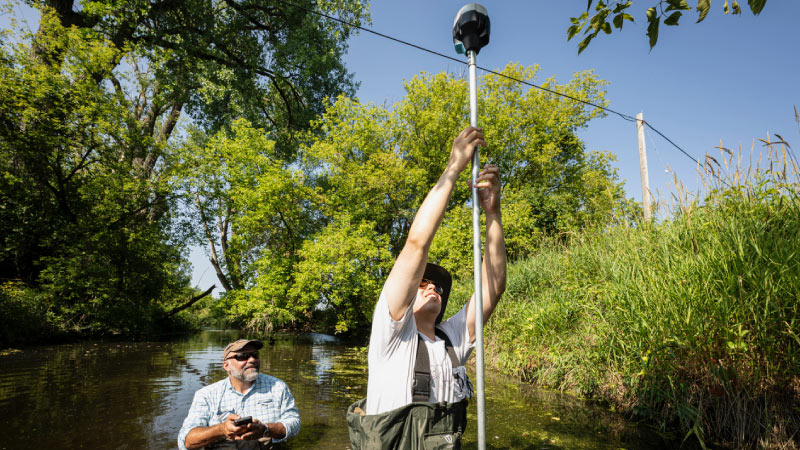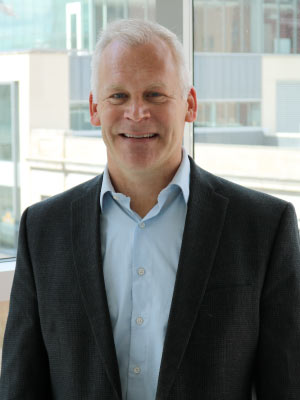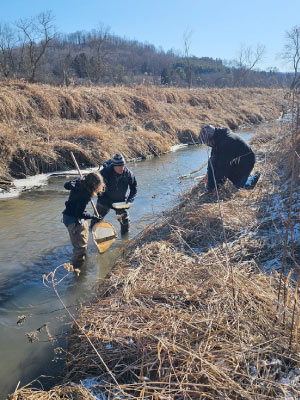
If you asked Ken Genskow for advice on watershed planning and management, he would tell you to always anticipate change. “Things are always changing … it’s the one constant in this field,” he says. Genskow has encountered his own fair share of “change” throughout his career path — he graduated from the University of Illinois Urbana-Champaign (UIUC) with a bachelor’s degree in general engineering, but soon realized he wanted to switch gears to doing environmental work. He then joined the Peace Corps and was assigned to Nepal for three years, working as an urban planner and engineer.

Genskow was unfamiliar with the field of urban planning, but grew to love the work he did with the Peace Corps. Upon returning to the United States, he returned to UIUC for a master’s degree in urban planning, where he discovered a particular interest in natural resources planning. He furthered this interest at the University of Wisconsin–Madison, pursuing a PhD in urban and regional planning. After graduating, he worked in watershed planning with the UW–Madison Division of Extension, which led to a faculty position in UW–Madison’s Department of Planning and Landscape Architecture. Now, he’s a professor in the landscape and urban planning department, an affiliate of the Nelson Institute, and was recently named the chair of the Nelson Institute’s water resources management (WRM) program.
Are you currently working on any projects or research?
I recently received funding to lead a project with Paul Block [Nelson’s Reid A. Bryson Distinguished Professor of Climate, People and Environment], and [Wisconsin State Climatologist] Steve Vavrus. The project is helping communities in rural Wisconsin prepare for extreme weather impacts. With this project, we’re able to focus on the specific needs of farmers, agricultural advisors, hazard and emergency planners, and school districts, and how they’re going to address climate adaptation issues.
Is there a specific project or study that’s stood out to you as a favorite?
A lot of my work is focused on the human dimensions of watershed planning and management; how we make decisions, what influences those decisions, and how our responses — both through governmental action and individual land management — relate to the environment. Almost 20 years ago, I was part of a project that was a partnership between the U.S. Environmental Protection Agency and several land-grant universities across the region, including UW–Madison. We created a program called Social Indicators for Nonpoint Source Pollution, and that’s been really gratifying. Recently I’ve been working with some of my colleagues on a retrospective of that. It’s very much still useful and relevant — there are groups in Wisconsin and in most other states who are using our approach for some of their watershed planning work.
What are some of your responsibilities as the chair of the water resources management program?
The role focuses on connecting with students about the WRM program and studies, as well as connecting them with other faculty across campus. We’re also working on forming stronger connections with alumni including an initiative identifying ways for alumni to connect with current WRM students.

What do students take away from the WRM program?
I want students to leave the program with the confidence that they have the ability to approach any water resource management challenge. They will know where to begin and how to engage others in addressing problems. It’s a very interdisciplinary program, so you can’t expect any individual to know everything, but we emphasize collaboration and working in teams in order to assemble resources to address any environmental problem.
What would you say to people considering a master’s degree in the WRM program?
Wisconsin is a great place to study water. This is a rich environment for people interested in learning about and protecting water and a great way to get involved is through this degree program. It’s wonderful for addressing real-life water resources challenges and environmental problems. I encourage anyone to talk with me, other program faculty, and alumni to get a sense of the breadth of issues that people learn about and work towards solving in the WRM program.